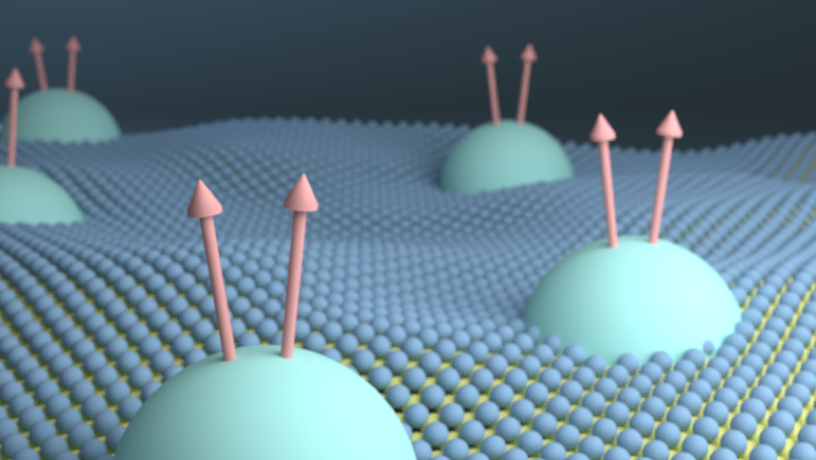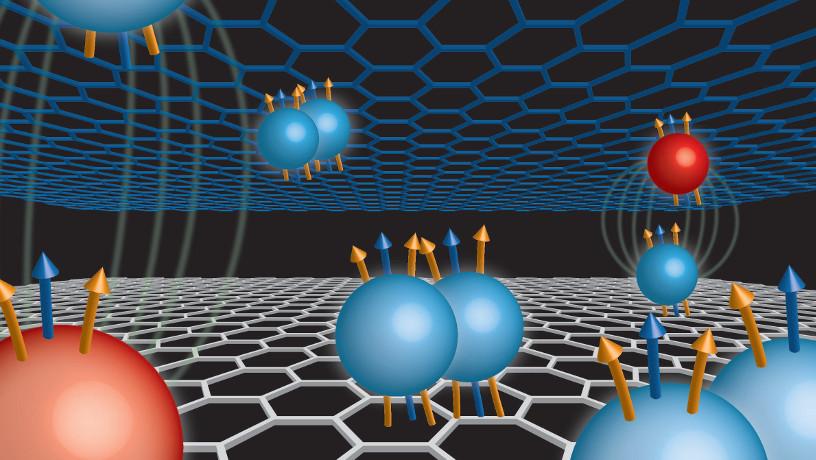July 6, 2020
2D Semiconductors Found to Be Close-To-Ideal Fractional Quantum Hall Platform
The finding demonstrates the excellent intrinsic quality of 2D semiconductors and establish them as a unique test platform for future applications in quantum computing.
February 24, 2020
Columbia Team Discovers New Way to Control the Phase of Light Using 2D Materials
Researchers use atomically thin materials—1/100,000 the size of a human hair—to manipulate the phase of light without changing its amplitude, at extremely low power loss.
February 20, 2020
Columbia Researchers Develop New Method to Isolate Atomic Sheets and Create New Materials
The new exfoliation method makes large-area atomically thin layers that can be stacked in any desired order and orientation to generate a whole new class of artificial materials.
June 25, 2019
Research Reveals Exotic Quantum States in Double-Layer Graphene
The findings shed new light on the nature of electron interactions in quantum systems and establish a potential new platform for future quantum computers.
May 3, 2019
Columbia’s Dmitri Basov Wins Vannevar Bush Fellowship
The prestigious award supports top-tier researchers at U.S. universities whose work is of strategic importance to the Department of Defense.





